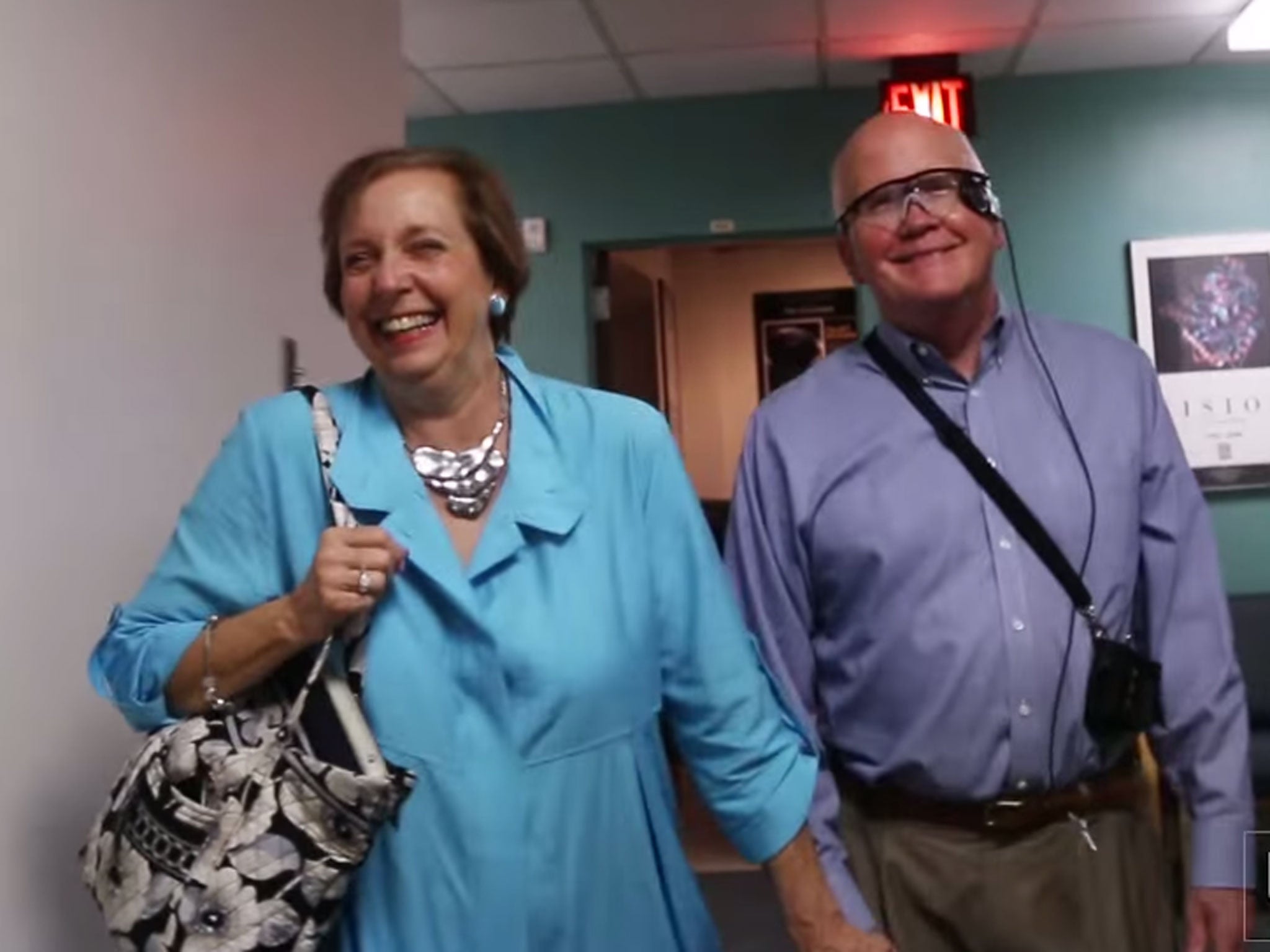Watch the amazing moment a blind man 'sees' again for the first time in 30 years
His wife cries with joy when her husband says he can see again

Since a degenerative eye disease claimed Larry Hester's eyesight in the early 1980s, he has lived in darkness. But last week, Mr Hester was able to see light for the first time in three decades, and the incredible moment was captured in a touching video.
The footage shows a dark examination room as Duke Medicine’s Dr Paul Hahn counts down to activate Mr Hester’s bionic eye, which was implanted just three weeks before.
Mr Hester, 66, then jolts backwards in shock, and says, in an incredibly calm voice, “Yes, oh my goodness” while his wife, Jerry Hester, claps with joy.
“Can you see, can you see Larry?! Oh my goodness!” she exclaims before asking the doctors if she can give him a kiss. “Oh yay!” she yells, as she runs towards her husband.
In his early 30s, Mr Hester was diagnosed with retinitis pigmentosa. At the time, the condition was little understood and there were no treatments available to patients.
Mr Hester is now the seventh person in the US to be given a bionic eye, also known as the Argus II Retinal Prosthesis Device.
While the device will not completely restore Mr Hester’s vision, it acts as a visual aid that helps him to distinguish between objects.
The implanted sensor works by picking up light signals sent from a camera mounted on a special pair of glasses.
During a clinic visit on Monday, Hester described “seeing” a white duck swimming in a pond, the harvest moon, and his wife’s yellow chrysanthemums.
And Mrs Hester told doctors how her husband was able to distinguish her face for the first time in years, and reached out to touch her while they were relaxing at home.
“It was just a beautiful touch,” she said.
Mr Hester will return to the Duke Eye Center regularly for additional training on the device, learning to discern shapes and objects from the flashes generated by the device.
He said is eager to provide researchers with information they can use to enhance the technology, so that the next generation of patients will benefit from his pioneering effort.
“I just wonder how I have been so lucky,” he said. “Why me? But if I can use what I learn from this to help others with RP, it will not just be for my benefit.”
Subscribe to Independent Premium to bookmark this article
Want to bookmark your favourite articles and stories to read or reference later? Start your Independent Premium subscription today.

Join our commenting forum
Join thought-provoking conversations, follow other Independent readers and see their replies